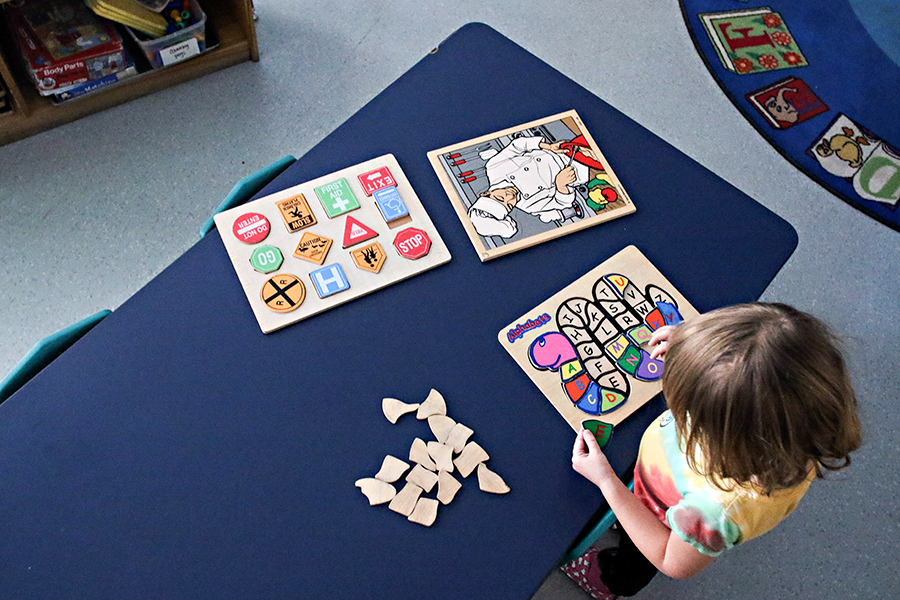A widely used low-income early-education center on the Blackfeet Indian Reservation has secured $3.9 million in federal dollars to fund operations at its Early Head Start and Head Start programs through 2020, at which point the center will have to apply for another five-year funding cycle.
But with a growing waiting list, the center’s director hopes additional funds can be obtained somewhere to expand the popular programs, especially Early Head Start, which serves infants and toddlers under the age of 3. Head Start serves ages 3-5.
Minnetta Armstrong is director of the Blackfeet Early Childhood Center, which encompasses both Early Head Start and Head Start, with a central office in Browning and satellite operations in other communities. The combined programs serve 405 children on the reservation, but the waiting list can be up to 60 deep, especially for the youngest ages. Armstrong said the center will apply for potential expansion grants when they’re announced in the spring.
“There is a demand right now for the Early Head Start, high demand,” Armstrong said.
U.S. Sen. Jon Tester, D-Montana, announced the $3.9 million to fund the Blackfeet Tribe’s Head Start and Early Head Start programs on Aug. 21.Tester’s office said the $3,954,152 was secured through the Administration for Children and Families and will assist the tribe in funding early-education initiatives that “cater curriculums to Native American children.” Tester is a member of the Senate Indian Affairs Committee.
“We must give the next generation of leaders the tools they need to thrive,” Tester said in an Aug. 21 statement. “Early childhood development provides students with a leg up and puts them on the path towards success. Head Start has helped thousands of families across Montana, and I will keep fighting to ensure that every child has access to the resources they need to flourish in the classroom.”
Tester’s office said the senator also helped secure $2.8 million in July for the Confederated Salish and Kootenai Tribes’ Head Start and Early Head Start programs.
Armstrong said the philosophy of Head Start is to work with the entire family, covering a wide range of educational, social, emotional, cognitive, developmental, health and nutritional needs. In addition to the regular classroom offerings for children, the Blackfeet Early Childhood Center offers parenting classes, case management, fatherhood activities, training for parents’ GEDs, assistance in securing driver’s licenses, budget-conscious cooking classes, dental and eye exams, physicals and much more.
The center also offers prenatal and disability services, and connects families to other service providers. And a key component of the educational curriculum, Armstrong said, is the incorporation of Blackfeet language and cultural activities.
“We strive for whole, happy, healthy, productive individuals,” Armstrong said. “Holistically we nurture a desire for growth and self-esteem, education, cultural values and language.”
“All teachers focus on helping the individual child to develop into the fullest the child can be,” she added. “We also work with their parents and every area of the child’s needs.”
